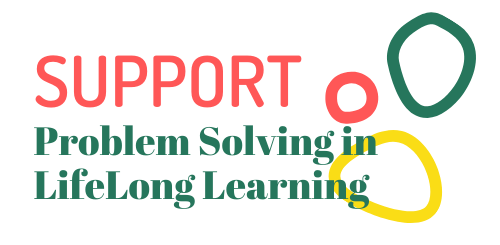Solving the Problem: Activities for Learning Groups
Title of activity
Meaningful learning
Working on the activity – Suggestions
Title of activity
Practical activities
Working on the activity – Suggestions
The simulation of a complex situation, in which it is asked to play – sometimes through real dramatizations – key roles in order to reach its understanding and/or simplification.
The project work, which requires the development of a strategy to achieve concrete objectives.
Brainstorming, which can be applied alone or as part of other activities and interventions and is functional to the creative generation of ideas and solutions.
Title of activity
Stimulating questions
Working on the activity – Suggestions
Solving the Problem: Self-reflection (educator’s reflection)
Reflecting on the changes in the group dynamics
—
Points for Discussion with your Organisation
Suggested Training Course available online
